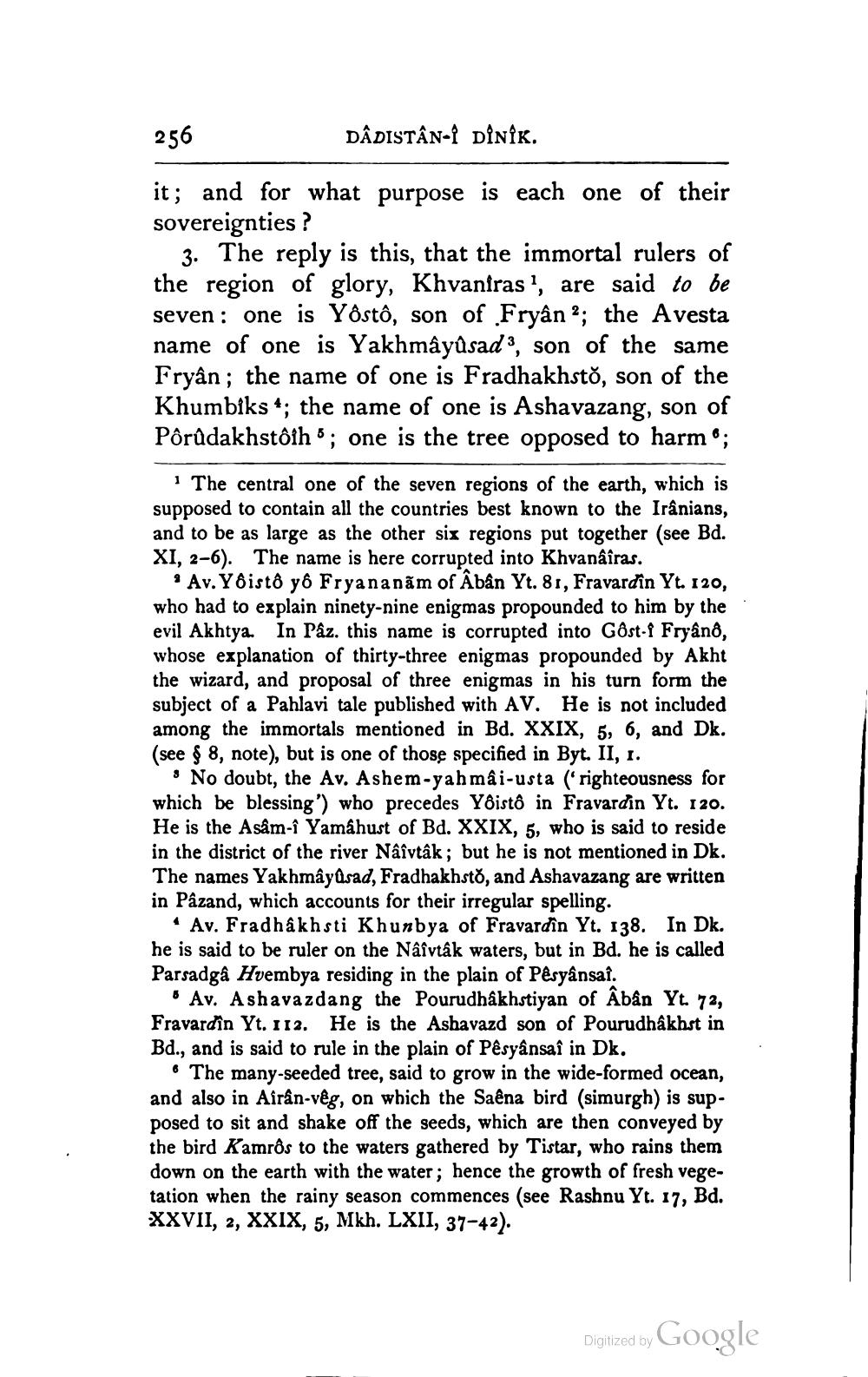________________
256
DÂDISTÂN-I DÎNÍK.
it; and for what purpose is each one of their sovereignties?
3. The reply is this, that the immortal rulers of the region of glory, Khvantras", are said to be seven: one is Yôstô, son of Fryân ?; the Avesta name of one is Yakhmâyûsad", son of the same Fryân; the name of one is Fradhakhsto, son of the Khumbiks 4; the name of one is Ashavazang, son of Pôrûdakhstôih 5; one is the tree opposed to harmo;
1 The central one of the seven regions of the earth, which is supposed to contain all the countries best known to the Irânians, and to be as large as the other six regions put together (see Bd. XI, 2-6). The name is here corrupted into Khvanâîras.
Av. Yðisto y6 Fryananăm of âbân Yt. 81, Fravardin Yt. 120, who had to explain ninety-nine enigmas propounded to him by the evil Akhtya. In Paz. this name is corrupted into Gôst-i Fryând, whose explanation of thirty-three enigmas propounded by Akht the wizard, and proposal of three enigmas in his turn form the subject of a Pahlavi tale published with AV. He is not included among the immortals mentioned in Bd. XXIX, 5, 6, and Dk. (see $ 8, note), but is one of those specified in Byt. II, 1.
No doubt, the Av. Ashem-yah mai-usta ("righteousness for which be blessing') who precedes Y isto in Fravardin Yt. 120. He is the Asâm-i Yamahust of Bd. XXIX, 5, who is said to reside in the district of the river Naivták; but he is not mentioned in Dk. The names Yakhmâyüsad, Fradhakhsto, and Ashavazang are written in Pazand, which accounts for their irregular spelling.
Av. Fradhakhsti Khunbya of Fravardin Yt. 138. In Dk. he is said to be ruler on the Nâívták waters, but in Bd. he is called Parsadga Hvembya residing in the plain of Pêsyânsai.
• Av. Ashava zdang the Pourudhakhstiyan of Abån Yt. 72, Fravardin Yt. 112. He is the Ashavazd son of Pourudhakhst in Bd., and is said to rule in the plain of Pêsyânsa î in Dk.
6 The many-seeded tree, said to grow in the wide-formed ocean, and also in Airân-vêg, on which the Saêna bird (simurgh) is supposed to sit and shake off the seeds, which are then conveyed by the bird Kamrôs to the waters gathered by Tistar, who rains them down on the earth with the water; hence the growth of fresh vegetation when the rainy season commences (see Rashnu Yt. 17, Bd. XXVII, 2, XXIX, 5, Mkh. LXII, 37-42).
Digitized by Google




